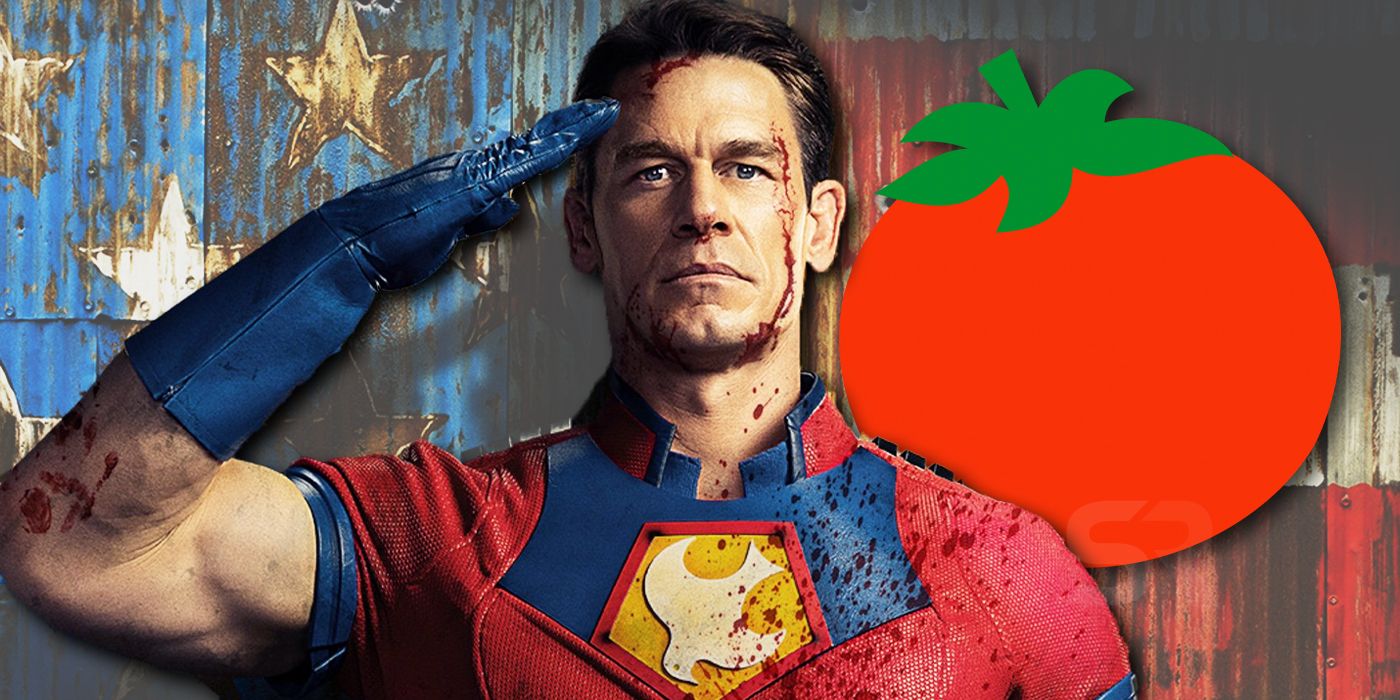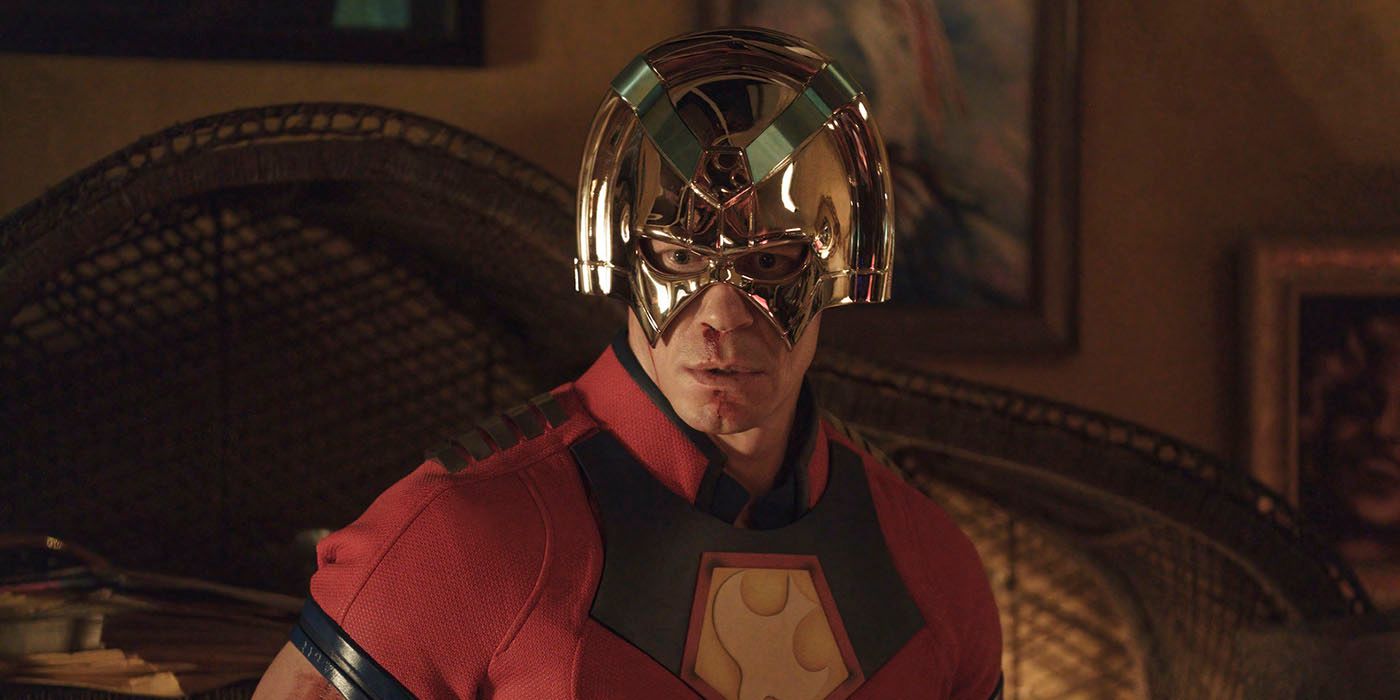The Suicide Squad made way for the spinoff TV series Peacemaker, and here’s what critics are saying about it so far. The DC Extended Universe has gone through many ups and downs since its beginning in 2013 with Man of Steel, but the underperformance of titles like Suicide Squad and Justice League led the studio to change their plans for this universe – some characters got their own movies, others were cut short, and others got standalone sequels.
Falling into the latter category is David Ayer’s Suicide Squad, which got a standalone sequel titled The Suicide Squad, now directed by James Gunn. The Suicide Squad introduced two Task Force X teams with old and new characters, but the first team was killed in the first minutes (the only survivors being Harley Quinn and Rick Flag). The second team, then, became the leads of the movie, and it was formed by Bloodsport (Idris Elba), Peacemaker (John Cena), King Shark (Sylvester Stallone), Polka-Dot Man (David Dastmalchian), and Ratcatcher 2 (Daniela Melchior), who were joined by Harley and Flag. By the end of The Suicide Squad, Flag and Polka-Dot Man had died, and a post-credits scene revealed that Peacemaker survived his apparent death.
Peacemaker is now back in his own TV show, which explores his origins and missions after the events of The Suicide Squad. Along with Peacemaker, the TV series is bringing back Emilia Harcourt (Jennifer Holland) and John Economos (Steve Agee) and introducing new, very colorful characters. At the time of writing, Peacemaker holds an 89% score in Rotten Tomatoes, with critics praising Gunn’s take on vigilantism, giving it a humorous twist, and the performances of the cast. Here’s what some of the positive reviews of HBO Max’s Peacemaker are saying:
“Cena is given heavy, substantial material to work with, as Gunn tries to unpack the Peacemaker character and his sad state of mind. He’s capable of pulling it off, even while he’s being scored by cheesy ’80s metal. (“There’s no wrong time to rock” is an important part of Peacemaker’s ethos, from the captivating opening credits — which show Gunn actually set out to make a TV show and not just an eight-hour movie — to the near-constant soundtrack.) He’s already proven he can sell the comedy of the character, and it’s clear throughout the series that Cena is especially capable when it comes to improvisation. But the key to this series was always going to be his ability to manage the emotional gravitas that would make the character more than just a joke.”
“While the series is absolutely (both narratively and thematically) a sequel to The Suicide Squad, it quickly morphs into a viewing experience that is wholly unique. It's both thrilling and a little jarring watching Gunn's mile-a-minute, genre-bending movie pacing transition over to television, as it allows for an unprecedented level of character exploration and development, and for the series' season-long plotlines to really simmer.”
“By now it’s not a surprise that Cena is a gifted comic actor – more versatile and game than Dwayne Johnson, even if the Rock’s magnetism is undeniable – and Gunn (who writes and/or directs most of the episodes himself) leans on his star’s verbal gifts as much as his physical ones. [...] Between the blood and guts, the slapstick, the political satire (Peacemaker’s two favorite words often seem to be “deep state”), and the musical digressions (including a married couple debating the merits of Cinderella versus Foster the People during a hostage situation), there is a lot going on here. Yet the series functions as a sincere character study of its flawed hero — and the unfortunate souls who have to work alongside him — just enough for the joke to never quite wear thin.”
Peacemaker has all those details that make the works of James Gunn so unique and easy to identify: a curated list of songs that fit the vibe he’s going for, pop culture references, and a strong emotional core that allows the audience to connect with the characters, no matter how unpleasant these can be. All these elements have been praised by critics so far, along with how Peacemaker is keeping the essence and personality of the character as seen in The Suicide Squad, but some critics have also pointed out the flaws of the series. Some felt that Peacemaker failed to replicate the humor and charm of The Suicide Squad, blaming it on the movie having a variety of characters while Peacemaker is only focused on the title character, others feel Gunn isn’t ready for TV yet, and others simply weren’t on board with Peacemaker’s sense of humor and violence. Here’s what the negative reviews of Peacemaker are saying:
“The problem is simple – if The Suicide Squad was 31 flavors of various types of damaged nutjobs – “Peacemaker” is essentially just a vanilla swirl of semi-competent assholes being cruel jackasses to one another. While briefly amusing at first, the series just does not have the same wit or mileage as “The Suicide Squad,” often because it misjudges how much time we want to spend time with its lead blowhard character (not a lot, to be honest) and does not build an interesting coterie around him. Though Gunn tries to make Peacemaker a sympathetic figure with a good heart buried underneath all the antiquated neanderthalism of his character – he’s sexist, borderline racist at best, and deeply problematic by today’s standards – while attempting to justify his behavior by showing his traumatic upbringing, none of it really convinces. Furthermore, “Peacemaker” fails to be more than just an ironic look at toxic shitheads and quickly becomes tedious, and more importantly, isn’t all that funny or engaging.”
“Caught in the awkward middle ground of quasi-prestige TV, however, his technique as a director lands in a less satisfying in-between, too polished to be schlock and too modest in scale to run with the superhero big dogs. Gunn works well in close quarters, the first season’s highlight sequences almost all being contained mano-a-mano fights. But too often, the televisual terrain proves inhospitable for him, as a storyteller and stylist of action.”
CNN:
“Eventually, the various strands begin to coalesce, but Gunn -- who wrote all eight episodes, and directed several -- appears far more enamored with the overall atmosphere than in advancing the story, indulging in detours and musical flourishes along the way. That includes a grim subplot involving Peacemaker's dad (Robert Patrick), a White supremacist whose history is dark even by the show's anything-goes standards.”
Since Peacemaker was announced, it was clear it wasn’t going to be a TV series for everyone given the character’s personality, the violence attached to him, and the R-rating Gunn was going for with the show. It’s also almost inevitable for Peacemaker to be compared to The Suicide Squad, but it’s important to remember that they’re different formats, stories, and characters, with Peacemaker being a more contained story focused on the title character’s story. In the end, the success of Peacemaker will be determined not only by the critics’ opinions but also by the audience’s reaction to it.


